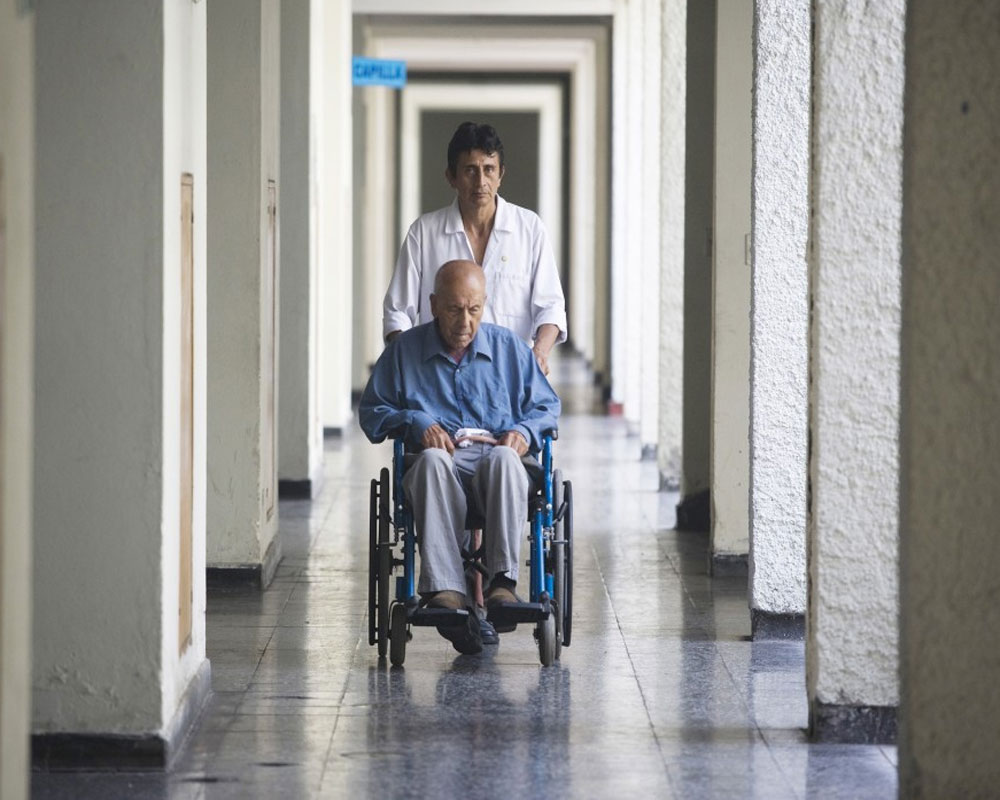New estimates of disability among India's elderly population show that the scale of the problem is much larger than suggested by the country's national census, a study has found.
The estimates are based on the ability to carry out three basic living activities -- walking, dressing, and toileting, said researchers from the International Institute for Applied Systems Analysis (IIASA) in Austria.
The study found that 17.91 per cent of males and 26.21 per cent of females aged 60 and above, experience disability in these areas, equating to nine million elderly men and 14 million elderly women.
The most recent census, from 2011, suggests that just five per cent of the elderly population suffer from a disability, researchers said.
The prevalence of disability is much higher among widowed women, and among the poor and illiterate, they said.
Nandita Saikia from IIASA and Mukesh Parmar from Jawaharlal Nehru University (JNU) in Delhi also found a statistically significant connection between chronic morbidity, or long-term health conditions, and disability.
They studied three such conditions - diabetes, high blood pressure, and heart disease.
Diabetes had the highest correlation to disability, followed by high blood pressure and heart disease.
"We found that the likelihood of disability is always the highest among diabetes patients, whereas the disability rate is the lowest among elderly persons with heart disease. This may be due to high mortality among heart patients," said Saikia.
"Diabetes patients, on the other hand, may live for longer periods with disability. These results are helpful for both patients and healthcare providers in terms of taking preventive measures at the onset of morbidities," she said.
Previous studies of morbidity and disability in India were carried out using primary sample surveys, limiting them to small areas of India with a small sample size.
They can therefore not be used to gain a generalised picture across the whole nation, as India is so large and varied, researchers said.
In addition, they tend to focus on the association between a specific type of morbidity and a specific disability, so cannot give a broader picture.
Saikia and Parmar took a different approach to cover the whole country and give a broad picture for the first time.
They used data from the second round of the Indian Human Development Survey which was carried out by the University of Maryland, US, and the National Council of Applied Economic Research in New Delhi.
This was a survey covering over 42,000 households across India, selected using a stratified random sampling technique, and covered various topics including health, employment, economy, and education.
The second round of the survey also included questions about chronic morbidity and disability.
The researchers defined disability as difficulty or inability to perform three specific activities of daily living -- walking one km, going to the toilet without help, and dressing without help -- and looked at the data for people aged over 60.
In the survey, respondents could answer "no difficulty", "can do with difficulty", and "unable to do it".
Each answer was assigned a score, which allowed Saikia and Parmar to calculate what is known as the Katz Index of Independence, which takes into account multiple disabilities.
As the survey also asked questions about long-term health conditions, the researchers were able to connect the disabilities to specific conditions.
The researchers say that acting in a timely way to address chronic morbidity will help to minimise the huge associated burden of disability.


























